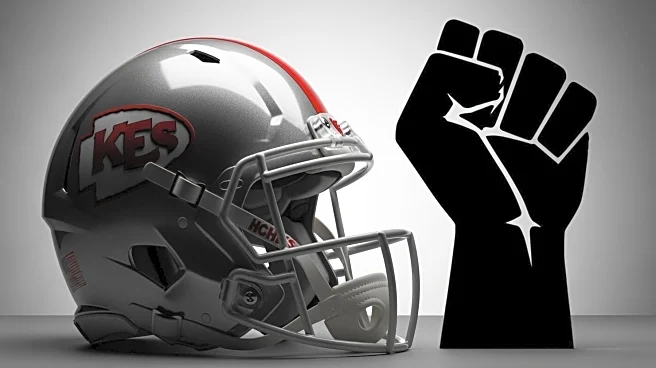What's Happening?
Warren McVea, a former running back for the Kansas City Chiefs and Cincinnati Bengals, passed away at the age of 79. McVea was a key player in the Chiefs' unexpected victory in Super Bowl IV, where he led all players with 12 rushing attempts. His career
in the NFL spanned six seasons, during which he played for the Chiefs and Bengals. McVea was notable not only for his athletic achievements but also for breaking racial barriers in college sports. He was the first Black player to receive a college football scholarship to a major Texas university, attending the University of Houston. McVea's career was marked by both triumphs and challenges, including a knee injury that ended his NFL career and personal struggles that led to a prison sentence in 1989. Despite these challenges, McVea was inducted into the San Antonio Sports Hall of Fame and the University of Houston Athletics Hall of Honor.
Why It's Important?
Warren McVea's legacy extends beyond his contributions on the football field. As the first Black player to receive a college football scholarship in Texas, he played a significant role in advancing racial integration in sports during the 1960s. His achievements paved the way for future generations of athletes, contributing to the broader civil rights movement within the realm of sports. McVea's story is a testament to the challenges and triumphs faced by athletes who break barriers, highlighting the intersection of sports and social change. His induction into various halls of fame underscores the lasting impact of his career and the recognition of his contributions to both sports and society.
What's Next?
The passing of Warren McVea may prompt reflections on his contributions to sports and civil rights, potentially leading to tributes and commemorations from the sports community and civil rights advocates. His story could inspire discussions on the progress made in racial integration within sports and the ongoing challenges faced by athletes of color. As the sports world remembers McVea, there may be renewed interest in exploring the history of racial barriers in athletics and the individuals who have played pivotal roles in overcoming them.
Beyond the Headlines
Warren McVea's life story highlights the complex interplay between sports, race, and personal challenges. His journey from breaking racial barriers in college sports to facing personal struggles later in life offers a nuanced perspective on the pressures faced by athletes who are also pioneers in social change. McVea's experiences reflect broader societal issues, including the impact of fame and the difficulties of navigating life after sports. His legacy serves as a reminder of the importance of supporting athletes beyond their professional careers, addressing issues such as mental health and post-career transitions.
















